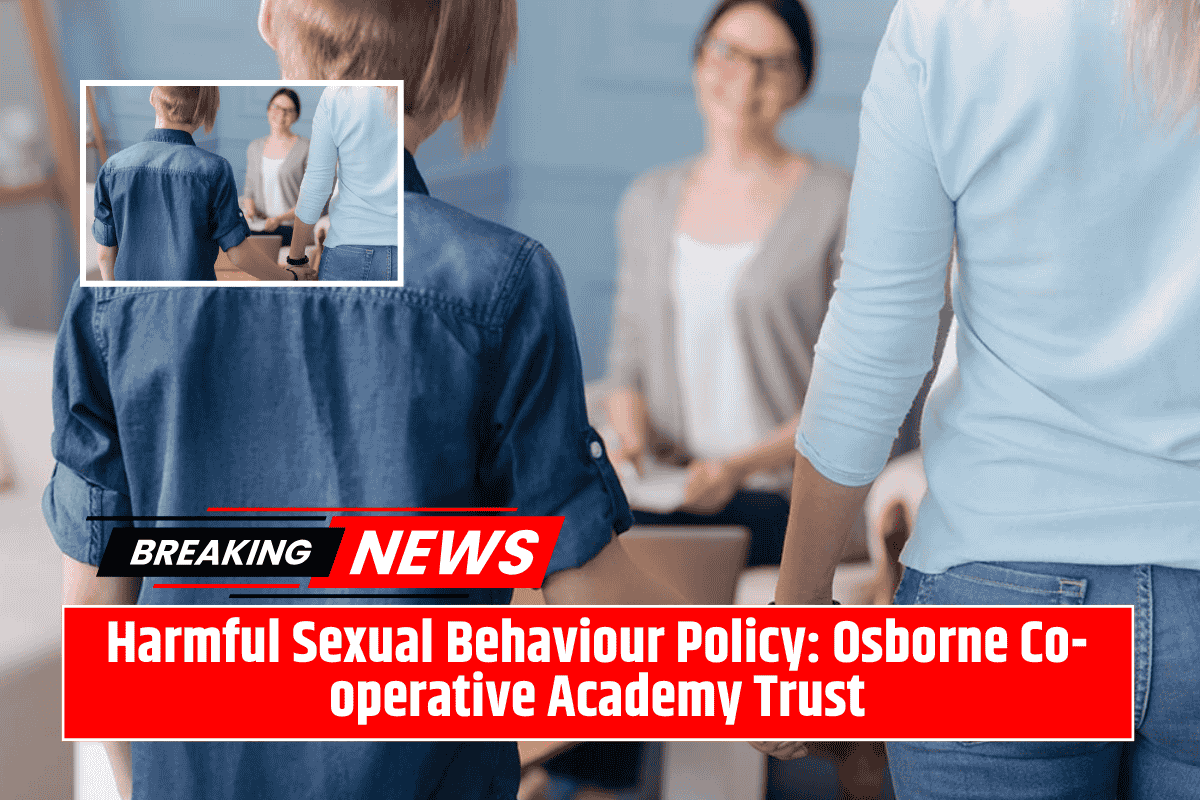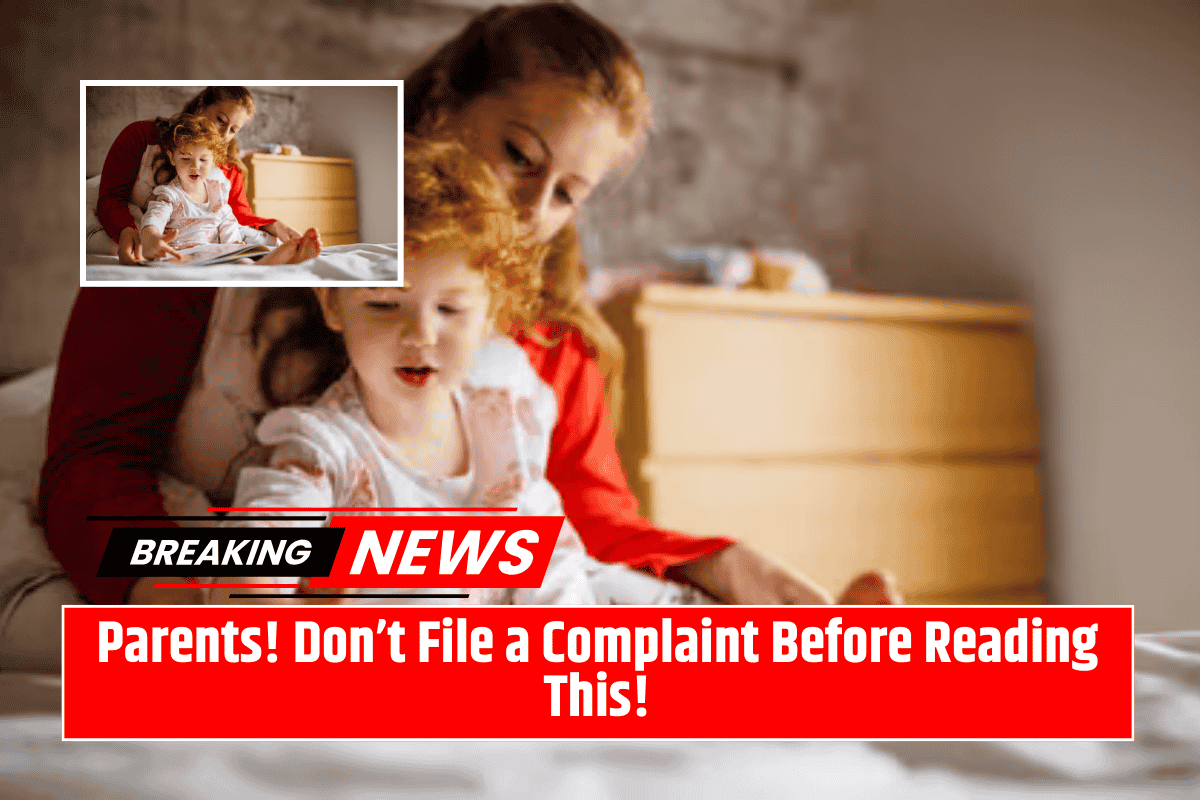At Osborne Co-operative Academy Trust, we believe every child and young person has the right to feel safe, respected, and supported. While it’s normal for children to show curiosity as they grow up, any sexual behaviour that becomes harmful or abusive is taken very seriously. We do not ignore or excuse it as “banter” or “just part of growing up.”
This policy explains how we deal with harmful sexual behaviour between children. It’s part of our overall safeguarding responsibility and follows national guidance like Keeping Children Safe in Education 2024 and the Department for Education’s advice from 2021.
Understanding Sexual Behaviour
Children and young people develop at different rates, and it’s normal for them to become interested in relationships and sex. Most sexual behaviours are healthy when they’re age-appropriate and not harmful.
But sometimes, behaviours can be:
- Inappropriate – not suitable for the child’s age
- Problematic – unusual, with concerns around consent or power
- Abusive – clearly harmful and victimising
- Violent – forceful or threatening
We take all concerns seriously and respond with care, compassion, and action.
Key Principles We Follow
Every case is different, so we deal with concerns individually. Here are the main things we consider:
- What the victim wants to happen
- The seriousness of the incident
- The age and development of those involved
- If there’s a power imbalance
- Whether the incident was one-off or repeated
- Risks to others in the school
- Any wider context or additional needs
We act in the best interests of all children involved, without making quick judgements.
Children with Special Educational Needs (SEND)
Children with SEND may face extra challenges when it comes to recognising or reporting abuse. We are especially careful to look out for:
- Behaviour changes being wrongly blamed on a disability
- Trouble speaking up due to communication barriers
- Higher risk of being targeted
We make sure our responses are adapted for their needs.
What Staff Must Do
All staff at our schools are trained to spot, report, and respond to signs of harmful sexual behaviour. If they are unsure, they are told to always report concerns, no matter how small they seem.
Our staff understand that sexual harassment and abuse can happen in person or online, between children of any age or gender. We follow the rule: “It could happen here.”
Examples of Harmful Sexual Behaviour
These behaviours are not acceptable and must be reported:
- Unwanted touching
- Sexual comments or harassment
- Upskirting (taking photos under someone’s clothing without consent)
- Pressuring someone to send nude pictures
- Sharing sexual images without consent
- Sexual bullying or name-calling
These behaviours may happen anywhere – at school, at home, online, or in public.
How We Prevent Harmful Sexual Behaviour
Our aim is to create a safe, inclusive, and respectful environment. We teach children:
- What healthy relationships look like
- That harmful behaviour is never OK
- That it’s always safe to speak up
- How to protect themselves and others
We use our Relationship and Sex Education (RSE) curriculum to discuss these topics in age-appropriate ways. This helps children understand boundaries and speak to a trusted adult if anything feels wrong.
We also promote the NSPCC helpline and other ways for students to seek help privately.
Working with Parents and Carers
We believe that parents/carers are key partners. We help them understand:
- What harmful sexual behaviour is
- How it can affect their child
- What signs to look out for
- What to do if they have concerns
What Happens When a Concern Is Reported
When a child shares a concern:
- They are treated with respect and taken seriously
- We reassure them they did the right thing by speaking up
- We never promise secrecy (because we must act to keep them safe)
- We inform our Designated Safeguarding Lead
- We may contact Children’s Social Care, the police, or other services
We keep children informed about what will happen next and involve other professionals as needed.
Recording and Investigating Concerns
We use a secure system called CPOMS to record all incidents. Staff are trained to record what happened clearly, using the child’s own words. The Designated Safeguarding Lead will decide the next steps and record their decisions.
If a formal investigation is needed, the Designated Safeguarding Lead or Deputy will lead it. They will keep in touch with parents/carers and work with other agencies to keep everyone safe.
Risk Assessments and Safety Planning
After any serious concern, we carry out a risk assessment to protect the children involved. This may include:
- Keeping children apart in school or on transport
- Changing timetables or providing extra support
- Working with families and outside agencies
- Regularly reviewing safety plans to make sure they still work
Supporting Everyone Involved
Supporting the Victim
We provide emotional support and make changes to help the child feel safe again. This may include:
- Adjusting lessons or routines
- Providing access to a trusted adult
- Referring to mental health or counselling services
- Involving the family in planning support
Supporting the Alleged Perpetrator
We support all children—even those who show harmful behaviour. We help them understand what they did, why it was wrong, and how to change. We use our behaviour policy and work with families, social workers, or therapists as needed.
What Can Happen After an Investigation
Depending on what we find, we may:
- Manage the issue in school with support and guidance
- Make a request for help from Children’s Social Care
- Contact the police in serious cases like rape or assault
We always take action that matches the seriousness of the concern and involves parents/carers unless doing so would put a child at risk.
Keeping Things Under Review
All cases are reviewed regularly to check:
- Have all actions been taken?
- Are the children getting the support they need?
- Do risk assessments still protect everyone?
- Is further support needed?
We keep accurate records and continue to involve parents and safeguarding partners throughout.
At Osborne Co-operative Academy Trust, we are committed to tackling harmful sexual behaviour and keeping all our children safe. Every concern is taken seriously. By working closely with staff, students, parents, and safeguarding agencies, we can respond quickly and appropriately to protect and support all children in our care.












